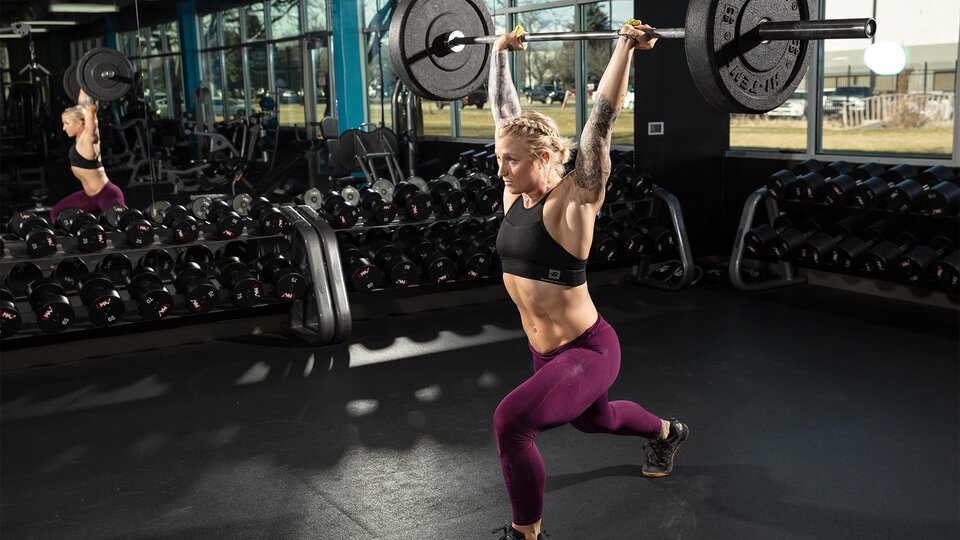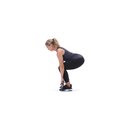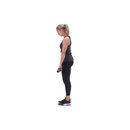Shoulder Workouts for Women | Back Workouts for Women | Leg Workouts for Women | Butt Workouts for Women | Arm Workouts for Women | Upper-Body Workouts for Women | Strength Workouts for Women
More women are strength training now than ever before. That’s great! But the catch is, most of them never move enough weight to make a profound change to their strength or physique.
I’m not here to tell you that you need to go super-heavy and become a competitive powerlifter—unless that’s your goal. I’d like for there to be more strong women in the world who feel the benefits, and see the aesthetic results, of following well-designed strength workouts built around big movements and done for moderate reps.
Still laboring under the illusion that performing anything less than 12 reps per set will make you “bulk up? Let’s put that one to rest. I’ve trained dozens of women and had them lift hard and heavy, which is the type of strength training that only enhanced their physiques. One of my clients even won the Mrs. Kentucky pageant—not a figure or bodybuilding competition—while squatting her bodyweight and doing chin-ups.
Here’s how to build the best strength workouts tailored to women, and two of my favorite training programs to follow.
1. Pick the Best Big Moves and Perform Them Longer
Nothing against all the frog pumps and leaping skater lunges—they have their place—but when building strength, the best exercises to use are big, compound movements that recruit a lot of muscle mass. Here are some examples:
Lower Body
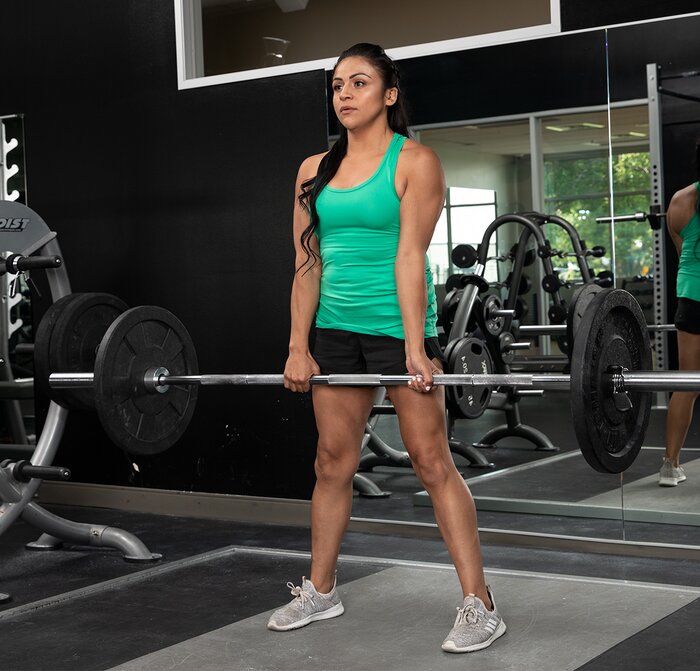
Upper Body Horizontal Pushing
Upper-Body Horizontal Pulling
Upper Body Vertical Pressing
Upper Body Vertical Pulling
Core Exercises
If all you did was spend the rest of your strength training career using nothing but those exercises, getting a little bit stronger at them over time, you would build a lean and sexy body—and you’d do it faster rate than if you spent half of your workouts on isolation-focused exercises and machines.
Strength training with big moves simply works better with protein! A shake a day on training days is a no-brainer.
2. Strength Train with Proper Intensity
Plenty of men and women alike take a “more reps and more volume are better” approach to training. Here’s my point of view: without intensity, all the volume in the world won’t make a powerful, positive change in your body.
So, what is intensity? You can use a one-rep max calculator to find it, but here’s how I explain it to clients: If you’re going to do a set of eight reps, that last rep should be tough, but doable. You should be able to complete one more rep, maybe two, but no more.
If you do 8 reps on a set of squats but you know you could have done 12, 15, or more, that is not enough intensity. Intensity is hard work—so hard that you might only reach it on your final set of an exercise, which is just fine. That can be enough to truly challenge your muscles and help you build a lean, fit body.
Going heavy? Big lifts are stronger and safer with a quality lifting belt.
3. Follow Simple Lifting Schedules
Hot take: many aspiring lifters—men and women alike—should only be using one of two training “splits”: total-body workouts, or upper/lower splits where you train upper body one day and lower body the next.
Both approaches allow you to hit the sweet spot of frequency and intensity, so you can bring more energy to every workout. Plus, you will be stimulating a lot of muscle mass each training session and your metabolism with be elevated longer.
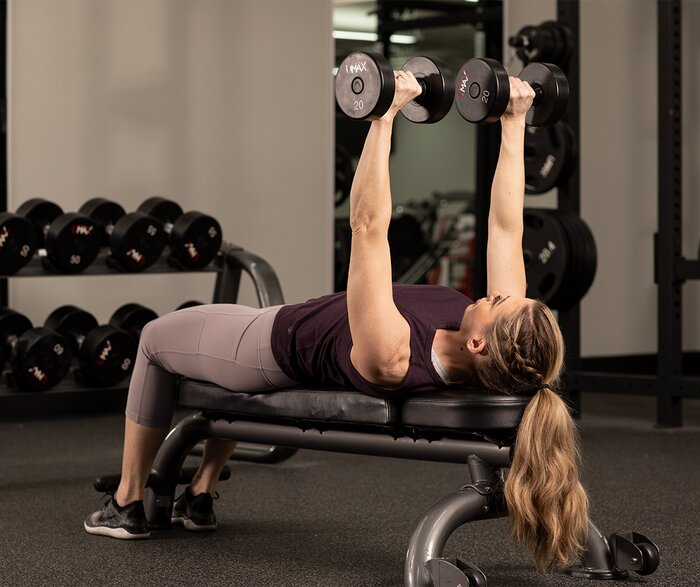
4. Use Your Time Wisely
Some coaches use circuits and supersets for everything. Others love straight sets. I’m in the middle: I recommend doing straight sets (meaning you do all the prescribed sets and reps for one exercise before moving on to the next) on big lower body moves, but the rest of the time, I prefer to use paired sets, which are like supersets with more rest between exercises.
Here’s why: After a hard set of squats or deadlifts you shouldn’t feel like doing anything except resting. Otherwise, go ahead and pair or group exercises together. This will allow you to get more work done in less time, which is always a good thing.
Full-Body Strength Workouts for Women
Now that you know the four main principles to strength train properly, let’s tie this all together into some solid lifting workouts. Alternate these two workouts in an ABA/BAB format, doing one workout twice per week, then the other twice in the next week. Feel free to use the Bodybuilding.com Exercise Database to look for alternate exercise variations that match your equipment.
Upper/Lower Strength Workouts for Women
You have more options here. You can perform these two workouts twice per week in an ABAB format or do the ABA/BAB format for three workouts a week. Your second upper body or lower body workouts can also mix up the movements and rep ranges, if you follow the same upper/lower push/pull template.
